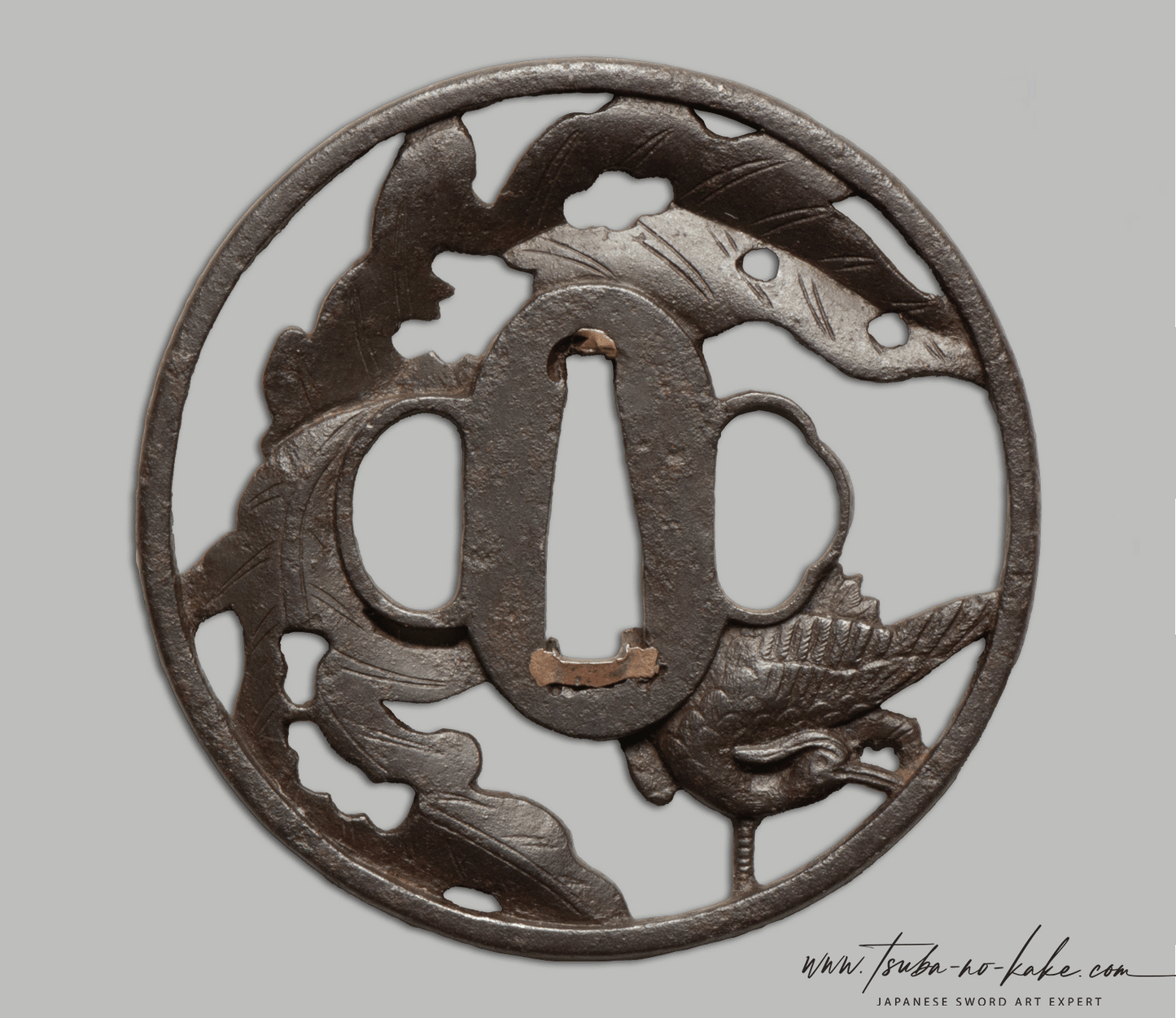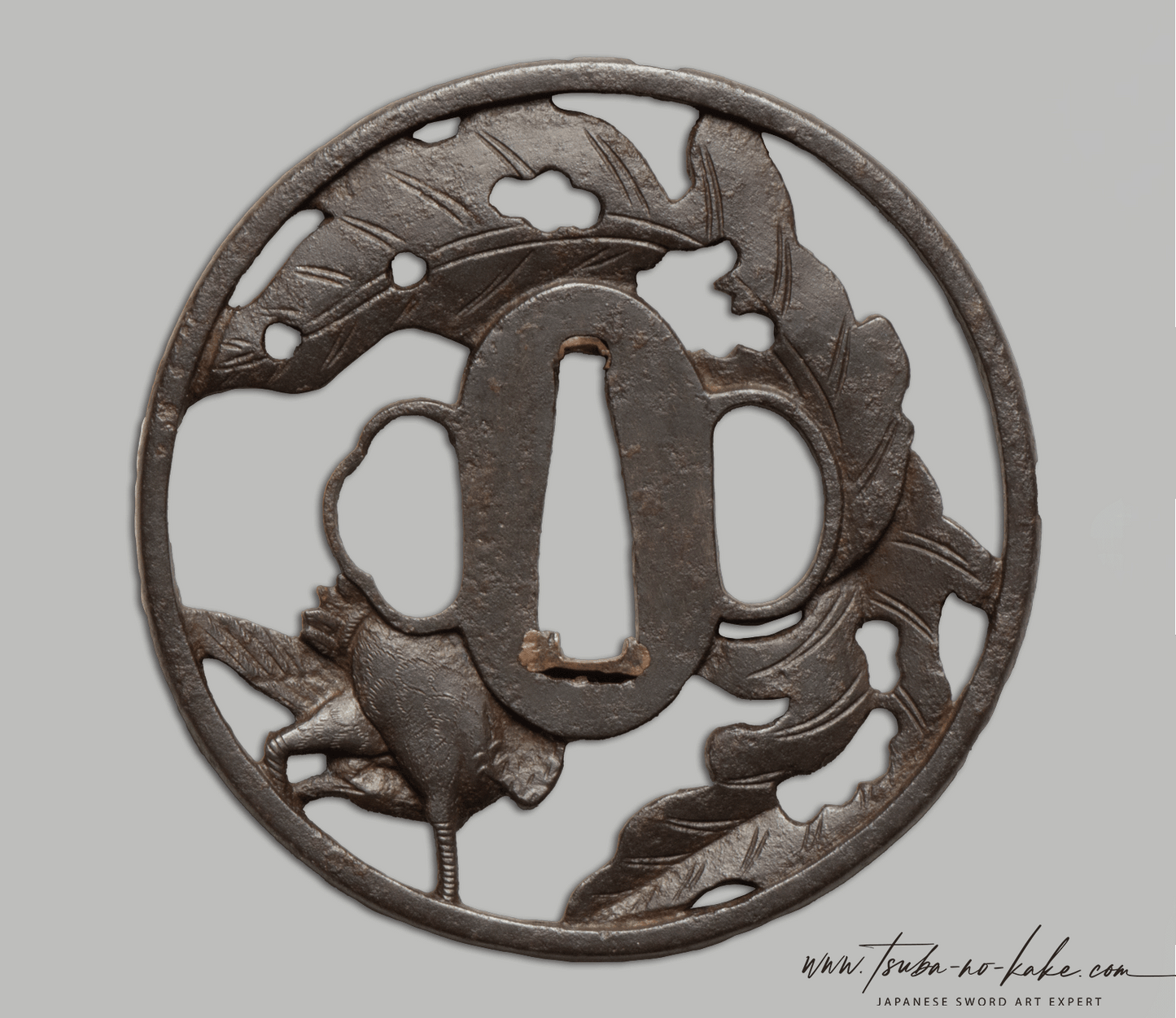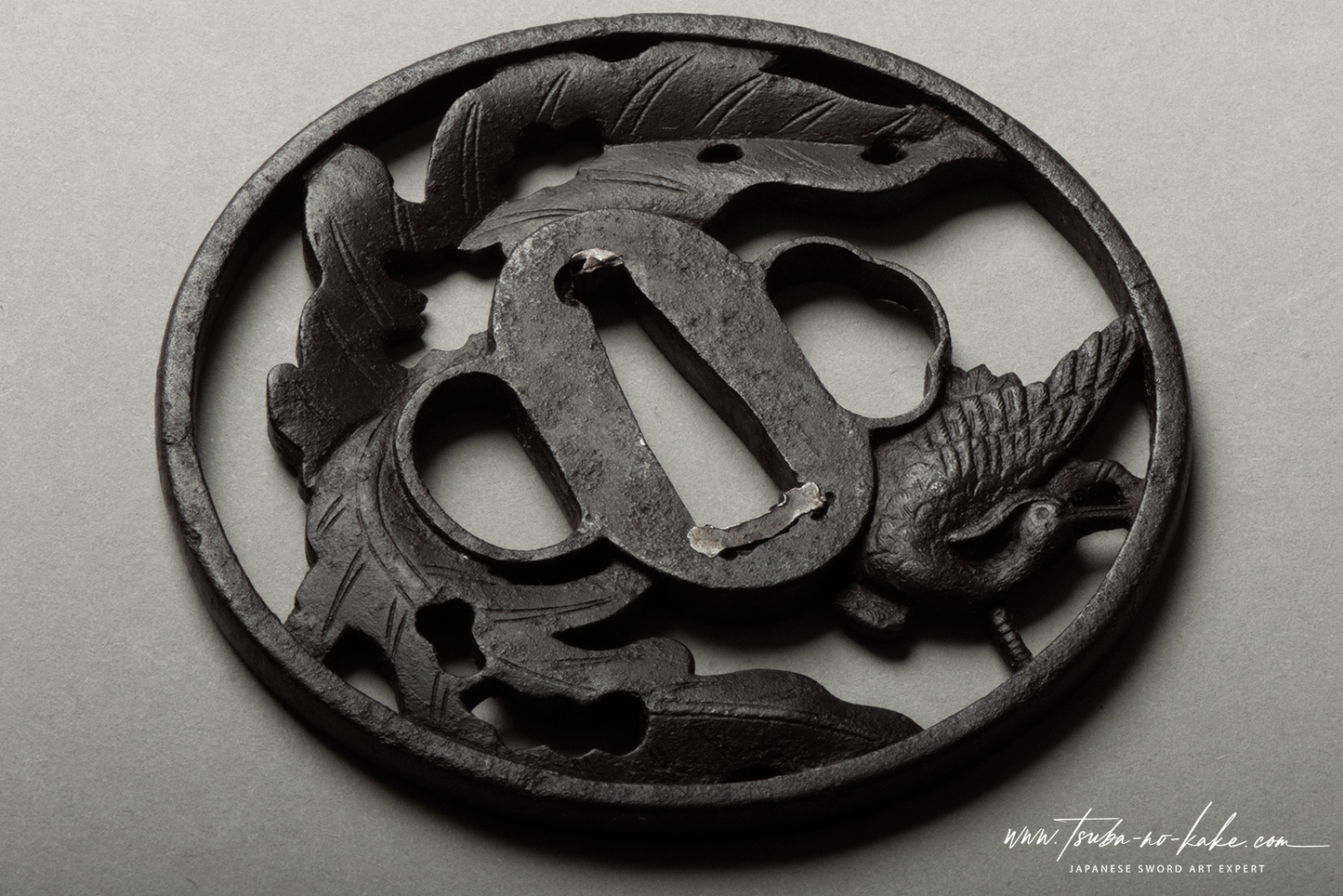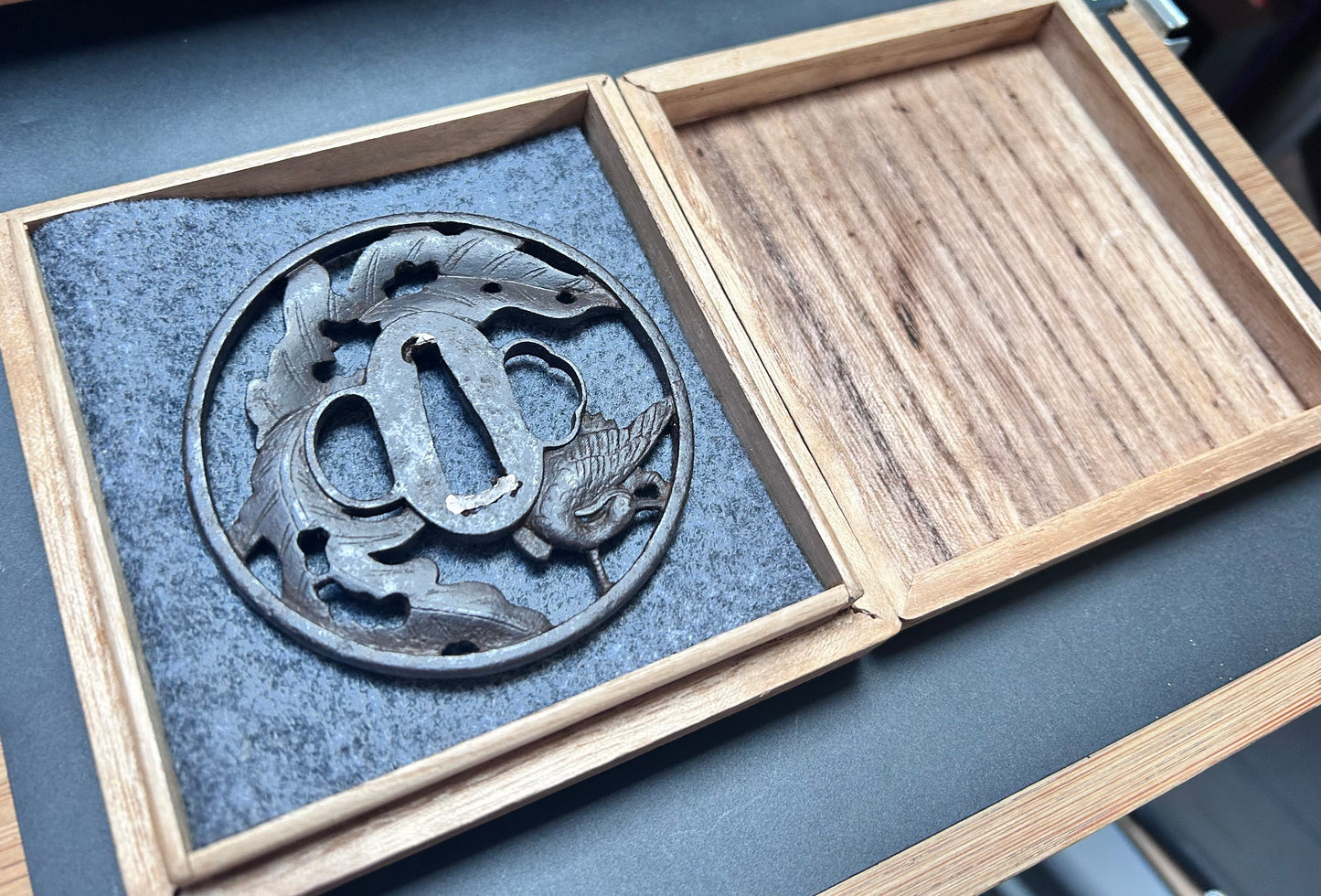Tsuba - Echizen Kinai - Crane on reed
Tsuba - Echizen Kinai - Crane on reed
Couldn't load pickup availability
Echizen Kinai Tsuba — Crane and Reeds Motif
This elegant iron tsuba (sword guard) is a fine example of the craftsmanship of the Echizen Kinai school, active primarily during the Edo period (17th–19th century) in Echizen Province (modern-day Fukui Prefecture, Japan). The tsuba features a beautifully openwork (sukashi) design depicting a crane standing among reeds, a classic motif symbolizing longevity, grace, and good fortune in Japanese art.
The design demonstrates the Kinai school’s signature style: bold, flowing forms executed with precision and balance. The crane is rendered with a strong sense of movement and vitality, while the surrounding reeds and leaves are carefully shaped to create both visual harmony and structural strength. The carving shows deep chisel work and a confident hand, characteristic of the Kinai lineage, which was known for its crisp modeling and naturalistic motifs.
Material and Finish
The tsuba is forged from Echizen iron, a distinctive material celebrated for its deep, rich blackish patina. This steel, often referred to as Echizen tetsu, is admired for its dense, fine-grained quality and subtle luster. Through expert forging and repeated hammering, the iron acquires a refined texture that, when finished with traditional patination techniques, develops a soft, black sheen unique to Echizen workmanship. This dark tone not only enhances the aesthetic depth of the openwork design but also provides excellent protection against corrosion.
Background
The Kinai school was founded by Shimizu Kinai, whose descendants maintained the style for several generations. They were official tsuba makers for the Echizen Matsudaira clan, and their works were highly regarded by samurai and collectors alike. Each generation continued to sign their works “Kinai,” often accompanied by the character for Echizen (越前), making stylistic rather than signature analysis essential for identifying specific generations.
Summary:
This tsuba exemplifies the refined artistry and metallurgical excellence of the Echizen Kinai school. The composition of the crane and reeds, executed in openwork iron with a lustrous black patina, captures both the elegance of Edo-period aesthetics and the technical mastery of Echizen ironworking tradition.
Dimension: 79,4mm x 79,1 mm x 4,5 mm (4,6 mm) 86,6 g
Share








